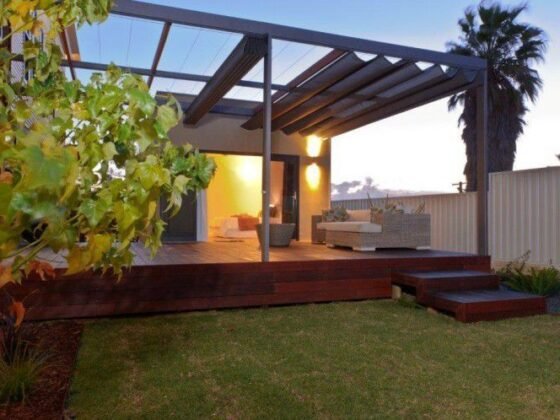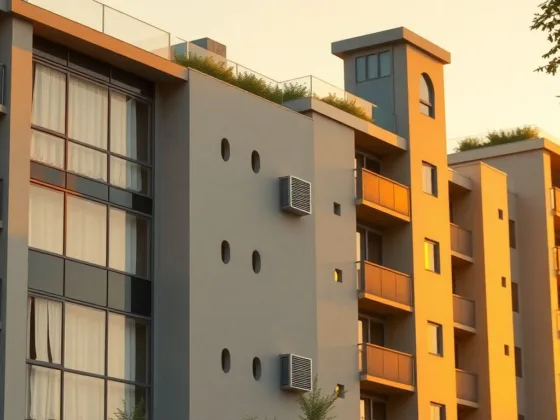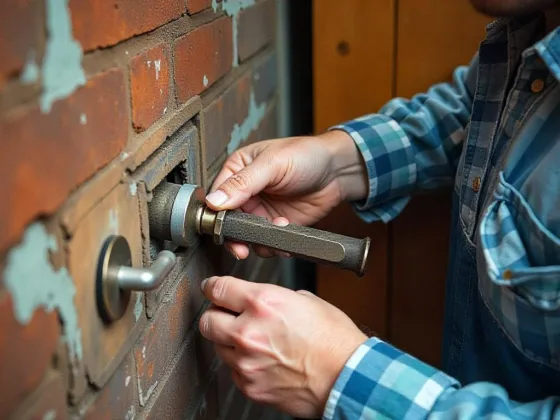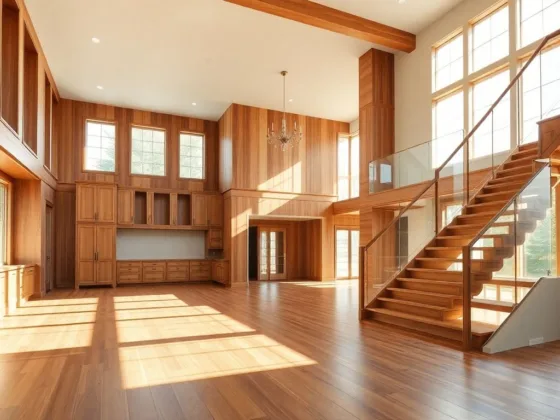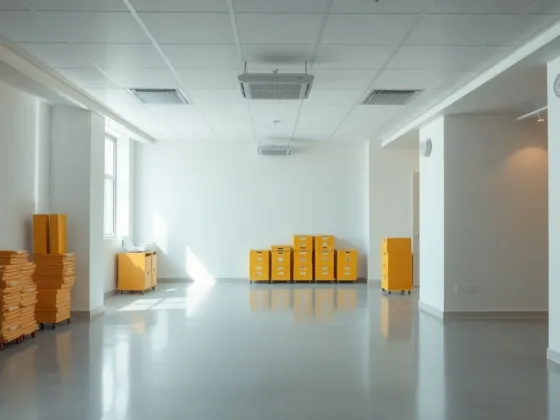Table of Contents Show
Wood is a timeless design element that can bring both warmth and elegance to any home. Yet aside from providing aesthetic value, wood is also a good investment. Studies have shown that hardwood floors can recoup around 106% of their installation costs.
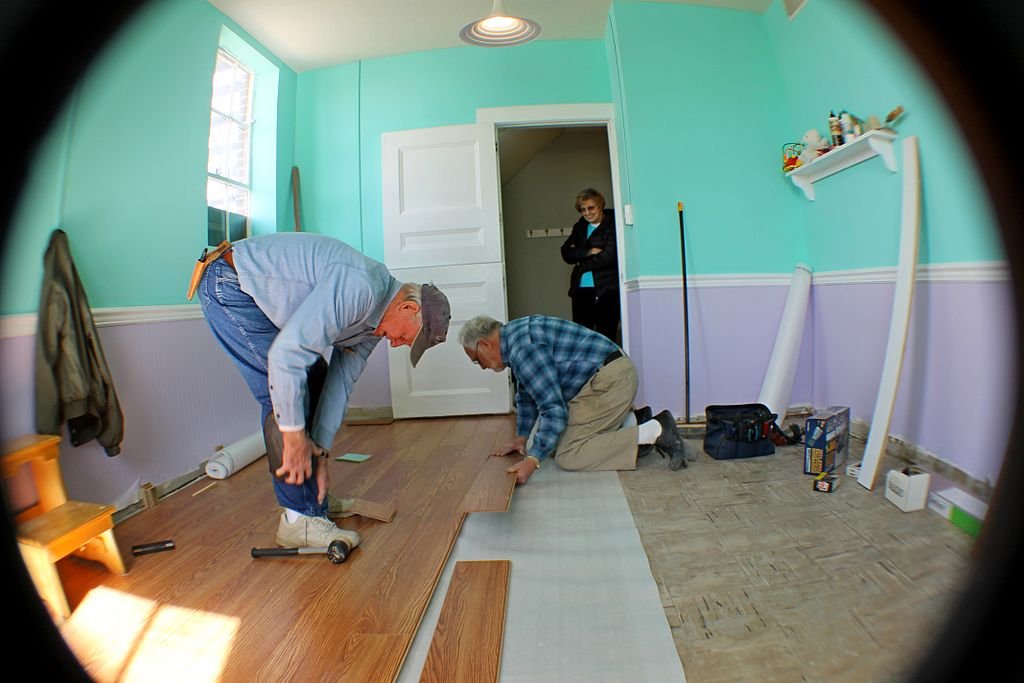
However, laminate flooring is another option that can imitate the appearance of hardwood flooring. In most cases, it often comes at a lower price point.
So, which is the best choice?
Keep reading for a guide that will help you decide between hardwood vs laminate flooring.
Laminate vs. Hardwood Cost
For many people, the best option will be the cheapest one. As mentioned, laminate flooring and hardwood flooring look similar, but the prices can be miles apart from one another.
Laminate
To make laminate flooring, manufacturers press pieces of composite wood together. They then place an image of hardwood on top of the finished composite. Because it uses wood composite as opposed to solid wood, laminate is quite affordable for most people.
You can expect to pay around $3 to $6 per square foot of flooring. Of course, the exact price depends on the company you work with and the type of laminate that you use.
Hardwood
Unlike laminate, hardwood comes entirely from harvested wood. This causes the price to often be higher than that of laminate.
Although the exact costs depend on what sort of wood you choose, you can expect to pay at least $5 to $10 per square foot of hardwood flooring. Some higher-quality wood types can cost you even more.
Read Also:
- Breathe New Life into Your Home: How to Choose the Best Perfect Flooring Options
- Unveiling Home Buyers’ Flooring Preferences: Making the Right Choice
- Hardwood Floor Maintenance Tips Homeowners Should Embrace
- Why White Laminate Flooring is Becoming a Popular Choice
- Is Laminate Tile Flooring Right for You? A Closer Look
Laminate vs. Hardwood Appearance
Both types of flooring look like products that come from wood, so the average person won’t be able to tell the two apart. However, there are some differences that can manifest over time.
Laminate
Even the sharpest eyes will have a hard time spotting the differences between high-quality laminate and hardwood. However, lower-quality laminate floors can look a bit cheaper and less genuine.
Composite wood is durable and scratch-resistant, so you won’t have to worry about scratches changing the appearance of your floors over time.
Hardwood
Of course, one of the biggest appeals of hardwood floors is their appearance. They look beautiful and natural, and the number of wood types and stains available to choose from means that your design options are nearly endless.
Hardwood floors aren’t as scratch-resistant as laminate. If you don’t maintain them, scratches can develop and change their appearance.
Hardwood vs. Laminate Strength and Durability
Most consumers also want to know the durability of wood laminate flooring vs hardwood. You don’t want to worry about having to pay extra money for maintenance or upkeep later on.
Laminate
As mentioned, laminate floors are quite durable since they’re made from pressed composite wood. Aside from resisting scratches, you’ll also find that they handle moisture and excessive foot traffic without a problem.
If you despise cleaning, laminate flooring is also a breeze to clean.
Hardwood
Hardwood is a durable option, but you can start to see signs of wear and tear as time goes on. If you have a lot of people or pets that walk on their surface, you might see signs of use on your floors after a few years.
Moisture can also damage hardwood floors, as can direct rays from the sun for extended periods of time.
Hardwood vs. Laminate Repair
Regardless of how careful you are, your floors will probably incur damage at some point. Be aware of what the repair process looks like for each type of flooring.
Laminate
While higher-quality laminate floors are durable, they aren’t easy to repair. You can’t just sand away imperfections, which means that your best bet might be to replace boards that have damage.
However, if you’ve had your floors for a while, you might find that the new boards don’t match the older ones.
Hardwood
Hardwood flooring shows nicks and scratches easier than laminate, but you are able to sand these away. This extends the lifespan of hardwood floors, ensuring that with a little maintenance, you get to enjoy them for years.
Hardwood floors edge out laminate flooring when it comes to repairs.
Where Each Flooring Type Works Best
As you can tell, laminate and hardwood floors both come with different advantages and disadvantages. These make them ideal for certain rooms, while not a good choice for others.
Laminate
The durability the laminate floors offer makes them ideal for rooms that get a lot of foot traffic. Hallways and living rooms are great for laminate, as are kitchens. Pets, children, and even dropped bottles won’t damage the floors.
Laminate floors also come with a topcoat, which means that the sun will have a hard time damaging them. Feel free to use laminate in your sunroom or porch.
Hardwood
Hardwood works best in rooms that don’t have as much foot traffic. For most people, this is in rooms like their bedroom or dining room. Try to avoid putting hardwood in areas like hallways or kitchens.
As moisture can also damage hardwood, it’s not a good idea to use it in places like bathrooms or basements.
Hardwood vs. Laminate: Make the Right Choice
Whether you’re building a home or renovating your existing one, you want to make sure that you decide on the right materials.
Ensure that you consider the pros and cons of each to help you choose between laminate vs hardwood. As this guide explains, the right choice depends on your needs and budget.
Do you now have a better understanding of the differences between hardwood vs laminate flooring? If you do, take a moment to browse through some of our other posts for more home-related guides and tips.
